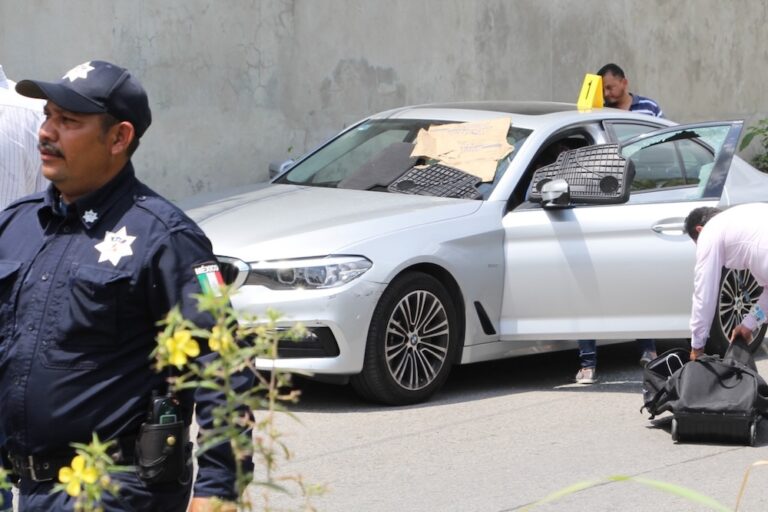(CPJ/IFEX) – The following is an 8 August 2008 CPJ press release: MEXICO: Reporter alleges beating by military personnel in Sinaloa New York, August 8, 2008 – With new allegations of the beating of a journalist by soldiers, the Mexican military must develop procedures to ensure that the press can cover its operations, said the […]
(CPJ/IFEX) – The following is an 8 August 2008 CPJ press release:
MEXICO: Reporter alleges beating by military personnel in Sinaloa
New York, August 8, 2008 – With new allegations of the beating of a journalist by soldiers, the Mexican military must develop procedures to ensure that the press can cover its operations, said the Committee to Protect Journalists today.
Mexican reporter Jorge Inzunza Bustillos was harassed and beaten by members of the Mexican army while covering a shooting in the western city of Culiacán on Monday, the reporter told CPJ.
Inzunza, a crime reporter for the Culiacán-based daily “Sol de Sinaloa”, arrived at the scene of a shootout between army personnel and a group of alleged criminals at around 8:30 p.m., the journalist said. He said he put on a vest marked with the word “press” on the back. Inzunza grabbed his press credentials and camera before identifying himself to several soldiers, who agreed he could stay with them.
As Inzunza took photographs of the wounded soldiers, a soldier identified as a member of the military’s Special Forces ordered the reporter to leave. When Inzunza turned around, he was hit on the back with what he believes was the stock of a rifle. The reporter said that at least 10 other soldiers pushed him until his radio and cell phone fell to the ground. As Inzunza knelt to pick them up, the soldiers kicked him repeatedly and grabbed his camera.
The journalist told CPJ that when he finally got his camera back after a couple hours, his memory card had been erased. The army officer who gave back the camera said he had deleted the photographs to protect him, the journalist told CPJ.
“This type of attack is part of a series of similar assaults that have been perpetrated against the press this year, since the deployment of military personnel across the country to combat organized crime,” said CPJ Americas Senior Program Coordinator Carlos Lauría. “Beyond investigating those responsible for this attack, the Mexican military needs to develop new procedures and training to ensure that soldiers understand that journalists have a right to cover these kinds of public operations and that their work should not be impeded through violence.”
Inzunza said he reported the attack to the federal government’s human rights ombudsman and to the office of the federal special prosecutor for crimes against journalists.
Emma Quiroz, spokeswoman for the Culiacán-Navolato military operation in the state of Sinaloa, told CPJ that she found out about Inzunza’s attack through media reports. “The Mexican army is committed to respecting human rights,” she told CPJ.
In February, federal agents detained and assaulted a photographer who was photographing the scene of a fatal car accident involving police in the eastern state of Veracruz. Federal agents also allegedly assaulted three reporters working for the Culiacán-based daily “El Debate” in May as they were reporting on a roadside checkpoint.
Mexico is one of the most dangerous places for journalists in Latin America, CPJ research shows. In the last five years, as the war between powerful drug cartels has intensified, local journalists who report on organized crime and the drug trade are facing grave risks. Twenty-one journalists have been killed in Mexico since 2000, seven of them in direct reprisal for their work. Since 2005, seven others have gone missing.
CPJ is a New York-based, independent, nonprofit organization that works to safeguard press freedom around the world.
For further information on the case of the Veracruz photographer, see: http://ifex.org/en/content/view/full/91356
For further information on the case of the “El Debate” reporters, see: http://ifex.org/en/content/view/full/93509


